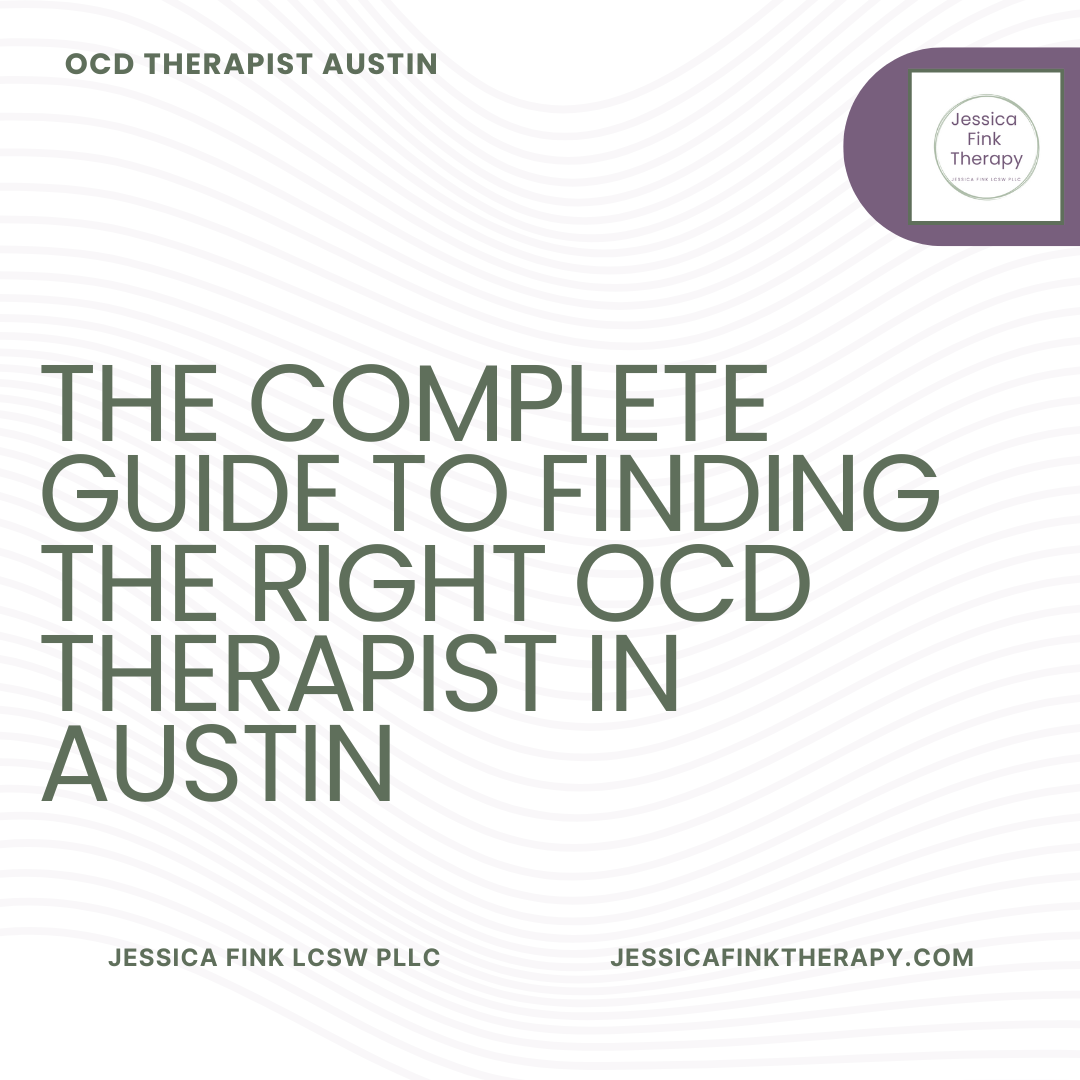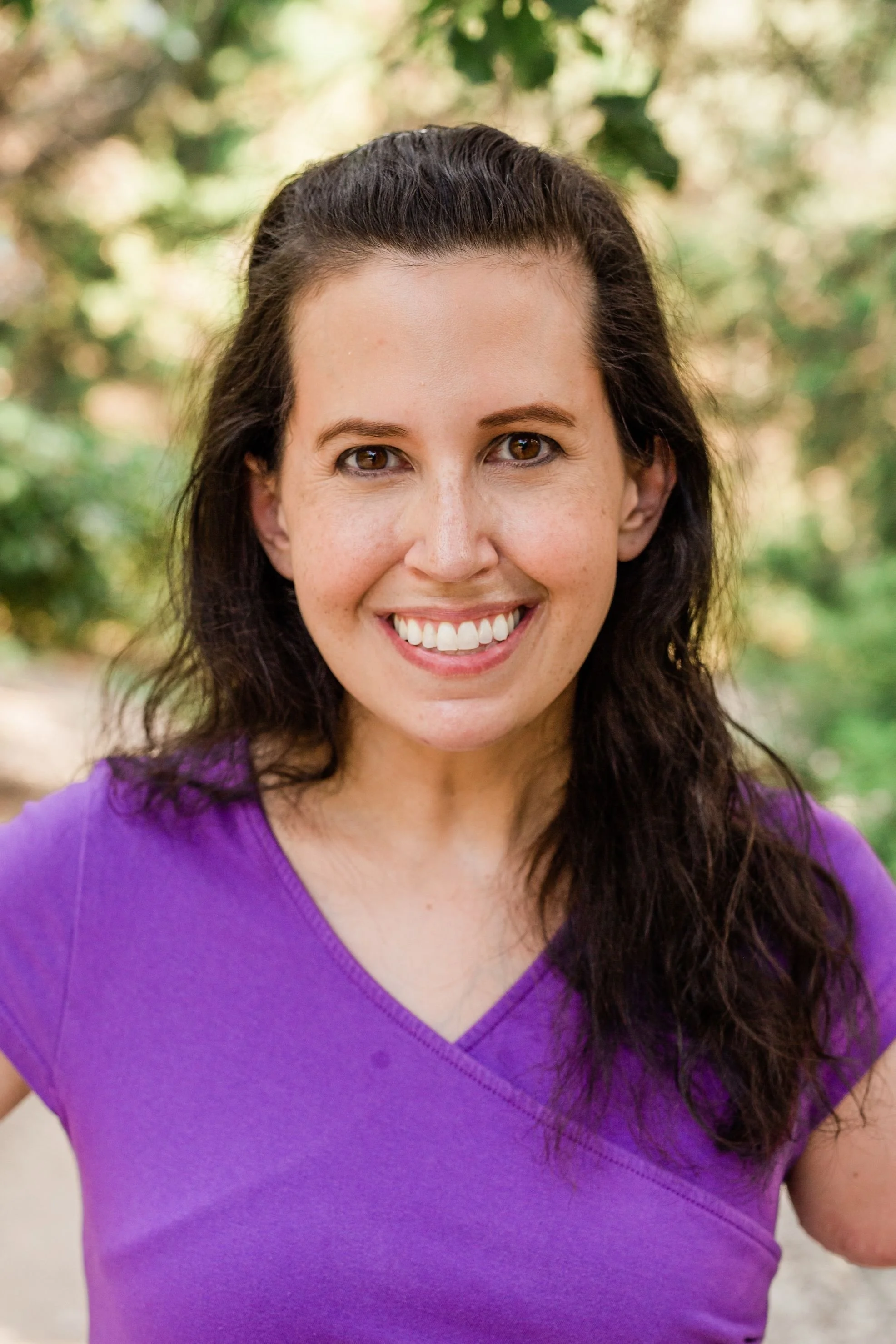The Complete Guide to Finding the Right OCD Therapist in Austin
Everything you need to know about finding an OCD therapist in Austin!
Austin is a laid-back, “go with the flow” kind of city, which is part of its appeal. But if you’re dealing with OCD, and you thus feel pressured to stamp out every trace of uncertainty, the idea of just letting life unfold is terrifying. Frustratingly, you know the obsessions are irrational and the compulsions aren’t helping, but uncertainty is even less palatable. If you’ve been searching for an OCD therapist in Austin, you know how poorly understood the condition is, even by mental health professionals. My goal is to help make your search a little easier with clear guidance and an explanation of what to expect.
Choosing an OCD therapist in Austin shouldn’t come down to price or convenience. It’s a cunning illness and requires a therapist with specialized training and experience. I don’t wish to add to your anxiety, but it is true that an incorrect diagnosis leads to improper treatment of OCD, which is, at best, ineffective and at worst, harmful. Many people struggle with OCD for years (7+ on average) before finding the right help.
Why Finding the Right OCD Therapist in Austin Matters
I aim to be your guide in navigating getting help for your OCD. As an OCD therapist in Austin, I’ve been down this path before and I know the way!
You have options when it comes to treating your OCD. Many clients come to me having been previously diagnosed with Generalized Anxiety Disorder (GAD) as the explanation for their symptoms. Of course, you could have both. But if your OCD gets missed and you’re given only a treatment for GAD, it will not touch those OCD symptoms. Check out this blog post for more on this subject. I’ve seen people told they can’t have OCD because they aren’t washing their hands or checking locks. Yes, those are common presentations of OCD, but they are far from the only ones. Another misunderstanding is related to the compulsions. These are the things you do in response to the distressing thought, either to feel better or prevent a bad outcome. Compulsions can be completely internal (thoughts, prayers, counting, etc.) If the thought serves to neutralize another thought, we could be looking at OCD.
What does it mean to find the right OCD therapist in Austin?
The gold standard treatment for OCD is Exposure and Response Prevention. It is undeniably effective but also quite difficult. Even with a structured and manualized treatment, the relationship between you and your therapist still really matters. You’ll be asked to systematically face the things that scare you while being asked to refrain from doing the thing that gives you relief, however temporary. There needs to be a sense of trust and safety with the person escorting you through this arduous journey. You also want someone who can accurately diagnose the OCD and distinguish it from other things that look similar but have different treatments.
The Different Types of OCD Therapists in Austin
You’ve probably noticed a lot of different letters after people’s names, such as LCSW, LPC, LMFT, or PhD. I wrote a blog post breaking down the differences between these credentials. For treating your OCD, any of these letters will do so long as they have the proper training. As mentioned above, the gold standard treatment for OCD is Exposure and Response Prevention (ERP), medication, or a combination of both. Generally speaking, any other treatment being offered as a first-line treatment should be met with skepticism.
The International OCD Foundation has an invaluable page breaking down first-line, adjunctive, second-line, and third-line treatments a well as treatments to avoid altogether.
I would not recommend seeing a coach for OCD unless that coach is also credentialed as a therapist, meaning they have some of the aforementioned letters after their name. Coaches cannot diagnose and treat mental illness, and that skill set is critical for OCD.
I am an LCSW-S (Licensed Clinical Social Worker-Supervisor). This means I have a Master’s Degree in Social Work from an accredited university, plus two years of supervised work experience and weekly meetings with a supervisor, which then allowed me to sit for the LCSW exam. I have 17 years of experience in the mental health field. I was trained in Exposure and Response Prevention in 2023 and completed several sessions of 1:1 consultation to deepen my learning. The S in my credential means I am now able to offer the same supervision I had earlier in my career to newer therapists working toward their LCSW license.
What Does Therapy for OCD in Austin Look Like?
If you’ve never done therapy before, you might picture yourself reclined on a couch, free associating with a blank slate therapist who doesn’t respond much to what you are saying. Think Betty Draper in Mad Men. Well, therapy has changed a lot since those days. ERP, the treatment for OCD, is a form of cognitive behavioral therapy (CBT). What Betty had was psychoanalysis, which is dedicated to uncovering your unconscious drives. I’ll be honest. I don’t think psychoanalytic psychotherapy helped people much. Maybe that’s a hot take. Maybe I’m biased because it’s not what I do. But even Sigmund Freud himself, who pioneered psychoanalysis, said therapy was about “transforming hysterical misery into common unhappiness.” I’d like to do better than that.
Your OCD can feel like a tantruming child. In working with an OCD therapist in Austin, you’ll learn how not to get into the weeds with it.
CBT is about getting in there and fixing the problem. You don’t have to just live with your OCD. We can get in there and knock it out, believe it or not. We won’t be delving into the deeper meaning of your OCD thoughts. There is no deeper meaning. It’s just random mental activity. This is why psychoanalysis could actually be harmful for OCD, as it’s centered around deeply analyzing the thoughts. I don’t care what the content of your thoughts is. It reflects nothing about you. It offers no solution. Even the most disgusting, weird, and out there thoughts won’t faze me at all and won’t mean anything about you.
The treatment is fairly simple and straightforward. You face the fear without doing the thing. When you don’t do the thing, your anxiety will increase. We let it increase and continue not to do the thing. Eventually, the anxiety crests and actually starts to decrease on its own. Without you having to do anything. You start to learn to live with uncertainty. You learn to talk back to your OCD flippantly, as if to let it know it no longer controls you.
I use the example of a kid who wants candy for dinner. The kid’s parent says that’s not happening and insists the kid eat a proper meal. Kid responds, “You’re the worst mommy/daddy ever!” Now…do you start debating the merits of your parenting with a 5-year-old? Present your case? Try to convince? No! You say, “Yep, I’m a monster. Now eat your green beans.” And that’s that, and you don’t worry that you’re actually a terrible parent. This is how you will start to respond to your OCD.
Practical Steps to Choosing an OCD Therapist in Austin
Let’s get into some practical steps for your search for an OCD therapist in Austin.
Find someone who specializes in OCD. The International OCD Foundation has a directory of its members. Not all OCD therapists are members of this organization, and not being a member doesn’t automatically make them bad, but someone who is a member is willing to take an extra step in their professional growth.
Read their website to get a feel for what they know. Look for someone to specifically mention OCD as a specialty. Bonus if they have a dedicated page and blog posts on the topic.
Schedule a free consultation. Many therapists, myself included, offer a free 15-minute phone call for anyone interested in working with me. You can hear my voice and ask all of your questions. If I don’t think I can properly help you, I’ll get you pointed in the right direction.
The relationship is key. You’re going to be doing some difficult work in treating your OCD, and it is imperative that you feel safe with your guide.
Approaches that work for other situations are not helpful for OCD. You might expect a therapist to reassure you. Sometimes reassurance helps. But not with OCD. Reassurance gives you a teeny-tiny piece of relief that diminishes as soon as the next thought pops into your head. It’s a never-ending cycle. Instead of feeding your OCD in this way, I will help you learn to tolerate the distress prompted by the thought because it breaks that cycle. Another tactic absent from OCD treatment is something called cognitive restructuring. Cognitive restructuring challenges the thought by examining evidence, odds, and the usefulness of the thought. It is helpful for some forms of anxiety, but not OCD. With OCD, you learn to say “maybe it will and maybe it won’t” in response to the thought and then go about your day.
FAQs About Starting OCD Therapy in Austin
I hope this guide is illuminating for anyone looking for an OCD therapist in Austin.
I’ll address some common questions that arise when looking for an OCD therapist in Austin.
What are the symptoms of OCD?
OCD involves obsessions and compulsions.
Obsessions are unwelcome and distressing ideas, thoughts, images, or impulses that repeatedly enter your mind. They can feel intrusive and jarring. They feel inconsistent with who you are and what you value.
Compulsions are behaviors or acts you feel driven to perform in response to the obsession. Typically, people recognize these as senseless or excessive. Efforts to not do them prove exceedingly difficult and increase your distress. Doing them gives you a modicum of short-lived relief.
These obsessions and compulsions eat up a lot of time, bother you, and interfere with your life.
How is OCD diagnosed and treated?
OCD is diagnosed with an interview. The American Psychiatric Association has laid out criteria for OCD as well as guidance on distinguishing OCD from other diagnoses. A standardized tool called the YBOCS (Yale-Brown Obsessive Compulsive Scale) will give me a full picture of how your OCD presents and how severe it is. The YBOCS is given throughout treatment to measure progress.
OCD is primarily treated with Exposure and Response Prevention. Sometimes medications are prescribed to help with the symptoms.
How common is OCD?
According to the National Institute of Health, 1%-3% of the global population has OCD. To make the math easy, let’s use 8 billion for the world population number, multiply that by 0.01 and 0.03, and we arrive at an estimate of 80,000,000-240,000,000 people across the world dealing with obsessions and compulsions that negatively impact their lives. It usually first shows up between early adolescence and young adulthood.
How effective is treatment for OCD?
The International OCD Foundation states that about 70% of OCD patients will benefit from either medication or therapy. For those who respond to medication, a 40-60% reduction in symptoms is observed, and for those who respond to therapy, a 60-80% reduction in symptoms is observed. When ERP was being developed initially, the creators did quite a lot of research. They knew the treatment wouldn’t sound very appealing, so they wanted to be very sure it was effective. My observation is that it is remarkably effective. People will say they got their lives back.
Next Steps: Taking the First Step Toward Support
This guide was intended to shed some light on finding help for your OCD. If you're looking for an OCD therapist in Austin, know that you have really good options. We can work together to defeat your OCD.
Author Bio
Jessica Fink, LCSW-S, is a licensed clinical social worker-supervisor based in Austin, Texas. In addition to OCD, she also specializes in sleep (insomnia, nightmares, hypersomnia, circadian rhythm disorders), chronic pain, RODBT, and PTSD. She favors structured and evidence-based approaches with clear goals and agendas. Go here to learn more about how Jessica works.




